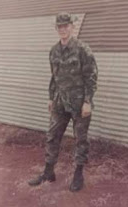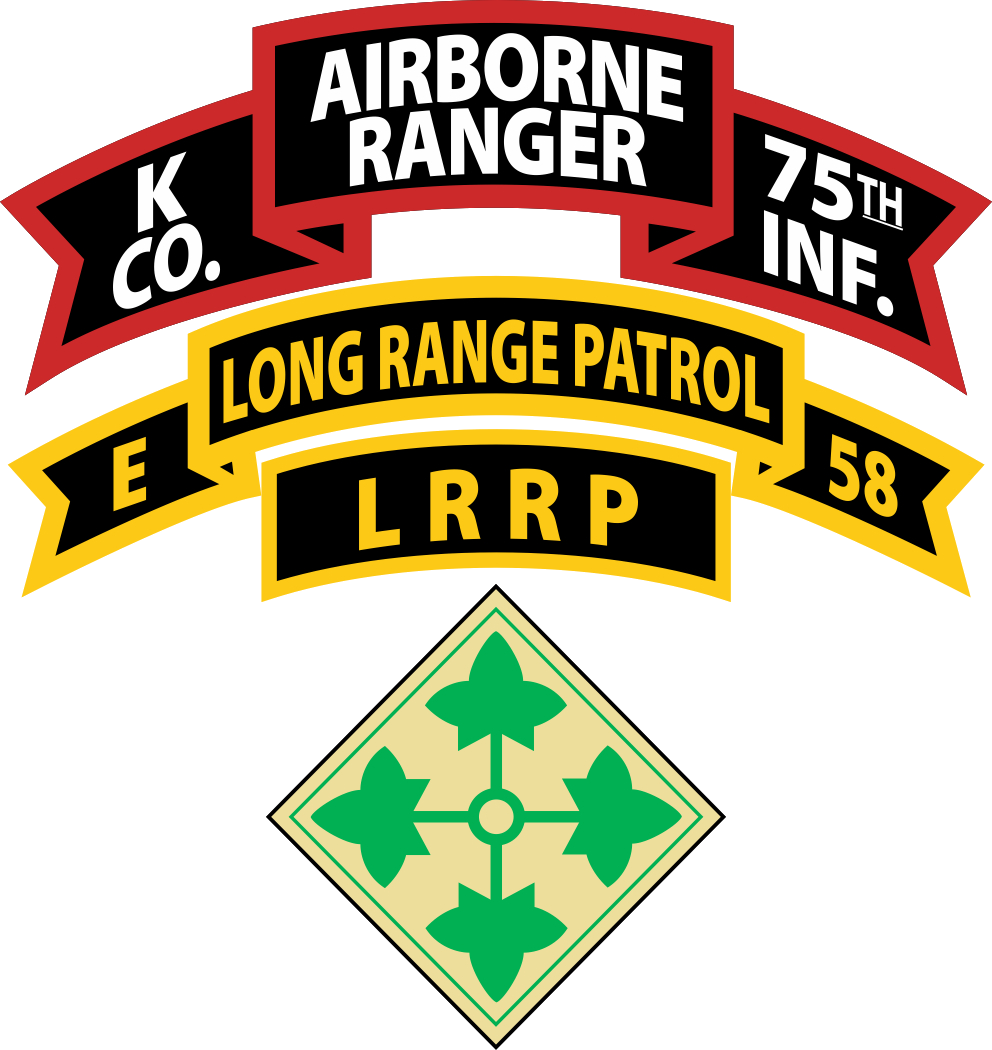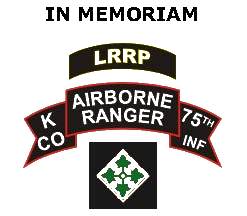
DONALD RAY ARROWOOD
March 2, 1949 – December 23, 2019
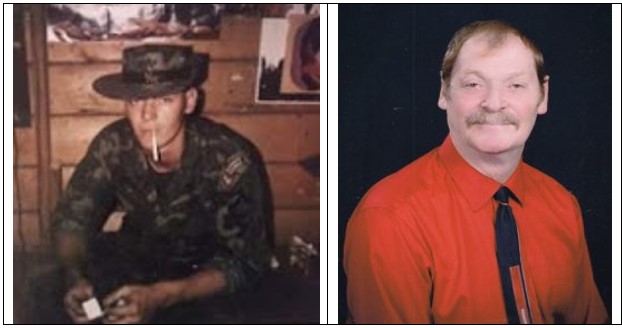
Both Donald’s father Alvin Loy Arrowood (1923-2014) and mother Lois Elizabeth Barger (1924-2011) were born in Catawba County, North Carolina, as was he. In 1943, Dad enlisted in the US Army to confront his nations enemies. He remained on active duty until the end of the war. Hickory, NC was much different then where generally you either farmed or worked in the textile industry. Alvin and Lois had begun their family in 1945 with the birth of Donald’s brother Alvin Loy Arrowood Jr, and was to add 6 more brothers and 3 sisters before their family “topped out” at 11. In addition to Alvin Jr., and his sisters Tina Denise Arrowood Hudgins (1957-1980); Kay Frances Arrowood Kasper (1950), Chynna A Arrowood Houston, were brothers Stephen Lewis Arrowood (1955-1998), Gary Eugene Arrowood (1946), Mike Arrowood (1953), Wayne Arrowood (1952) and David Arrowood (1969). Donald graduated high school in 1967 then, following the examples set by his father many years before, set off to defend his country in the jungles of Vietnam.
After the rigors of Basic Training and Infantry School, in 1969, it was decided for Donald that the big, bad Central Highlands of Vietnam were to be his new home for an entire year. Donald chose not to simply endure his year, he decided to create havoc for our nation’s enemy and take the fight to them. Initially, he was assigned to an Infantry unit in the 4th Infantry Division as a “grunt” – Light Weapons Infantryman. The warrior in his DNA saw him volunteer for the elite LRRPs (Long Range Reconnaissance Patrol). In the initial stages of the United States presence in Vietnam, the clear lack of real-time intelligence nearly allowed the NVA to overrun our forces in the Ia Drang, a battle related in the book and movie “We Were Soldiers Once….and Young”. Shortly after that hard-won battle, the 1st Cav was replaced by the 4th Infantry Division with the mission to “Tame the Ia Drang”. One of the first decisions was to determine how best to know the enemy. The solution was to insert 4-man teams of Rangers, then called LRRPs, to surreptitiously live in the jungle amongst the enemy. They would be inserted into the jungle for extended missions and patrol an area of suspected enemy concentration to uncover weaknesses and eliminate when possible. Later, in 1969, an Army-wide re-designation of all LRRPs transitioned them into Rangers, with Company K (Ranger), 75th Infantry (Airborne) becoming 4th Inf. Division’s eyes and on occasion its attack force. MG Peers, Division Commander, once famously proclaimed during a briefing, “My Rangers are out-killing my entire Division.” Donald and the teams from K/75th Rangers went to battle running missions out of An Khe in Kontum Province. His decision to volunteer was courageous and dangerous, but no young soldier who proudly wore the “Tiger Stripe Fatigues” ever regretted that life changing decision.
Donald saw more than his fair share of combat with the brother Rangers he hunted the jungle with. He earned a reputation as a warrior and man to be counted upon even in the most perilous situations. He is held in the highest regard by his brother Rangers who dole that respect out sparingly and never undeservedly. Donald was presented numerous awards and decorations for his service including one of the most honored awards the Combat Infantryman’s Badge, awarded only to infantrymen who have engaged in battle. For the next fifty years Donald took pride in recalling he once stood shoulder to shoulder with the finest group of men his nation could field. Together they endured the worst violence man could inflict upon another.
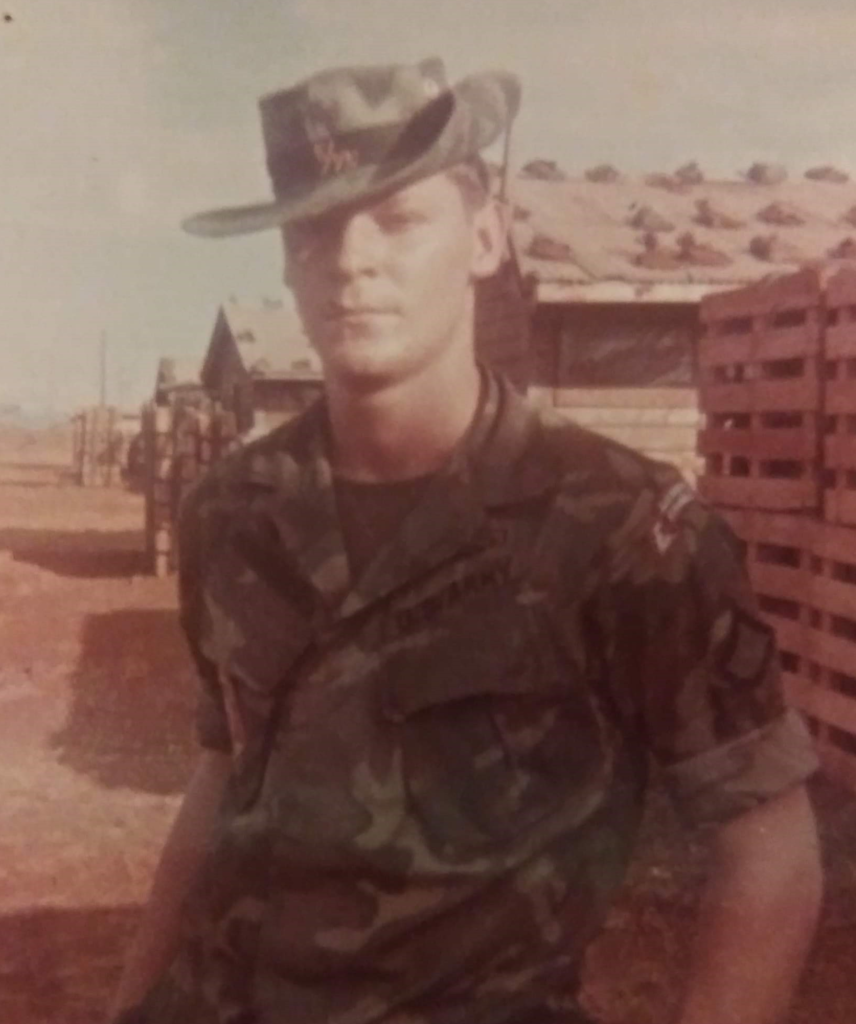
Donald spent an entire year trying simply “not to die”. Finally, in early 1970, the time came to leave the mountains of Kontum and return to the beautiful hills of Catawba County. Some warriors return home and prosper, others never leave the battlefield lodged permanently in their mind. Some men become model citizens, while others become a burdon to themselves, their family and their community. Many came home with wounds not readily apparent. None came home unchanged. These are all part of the sacrifice men risk when they go to war. It took Donald several tries before he finally found the stable lasting life relationship we all seek. He loved to fish, take vacations in the mountains and ride motorcycles with his “ride or die” dog “Buddy” His loving wife Debbie was there when he drew his last breath, comforted with Buddy close by.
Donald joined K 75th despite the extreme risk, perhaps because of it. Many people have asked why would one do that. There are as many reasons for their choice as there are men. All share the trait of courage and willingness to give their all for their brother Rangers and their country. Some Rangers are never placed in mortal danger, while others seem to attract it. The circumstances of their death cannot diminish the courage and heroism shown by these Rangers when they chose to join this exclusive brotherhood. Some Rangers are destined to die surrounded by expended brass and the bodies of their enemy, others will die many years after their service, unharmed and surrounded by their loved ones. All will be remembered as having been among the best this nation can send to war. All are heros. They never needed to show their courage with results, their decision to risk everything for the promise of nothing made that un-necessary.
In the end a fatal allergic reaction to Amoxicillin was to claim the same, but older, Donald that the entire horde of North Vietnamese and Viet Cong could not. It was finally time to go home after all his wars. His was a life journey worthy of a Ranger.
